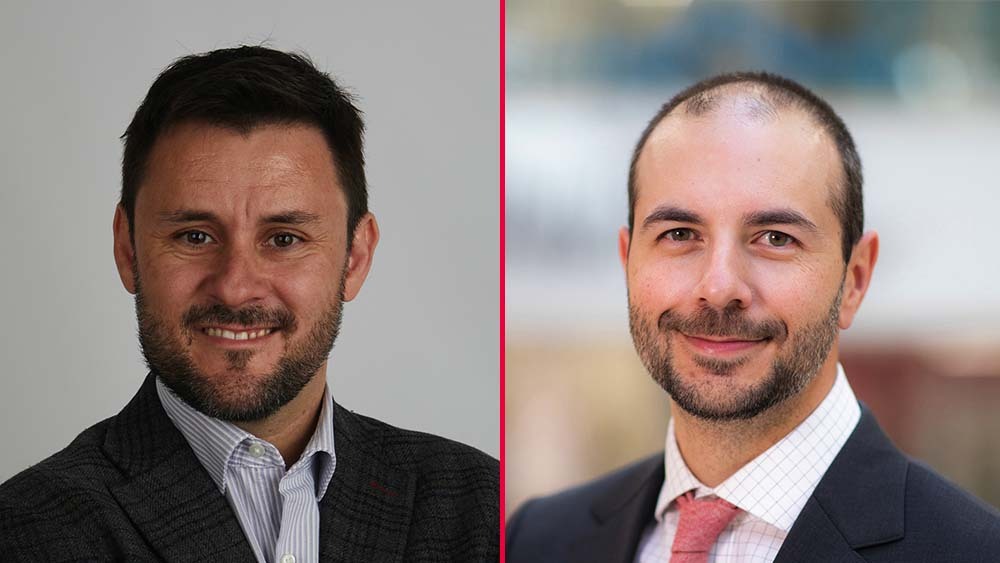
Dr. Daniel Selva and Dr. Nathan Tichenor from the Department of Aerospace Engineering at Texas A&M University have been named associate fellows by the American Institute of Aeronautics and Astronautics (AIAA).
According to AIAA, the grade of associate fellow recognizes individuals “who have accomplished or been in charge of important engineering or scientific work, or who have done work of outstanding merit, or who have otherwise made outstanding contributions to the arts, sciences, or technology of aeronautics or astronautics.”
To be selected, an individual must be an AIAA senior member in good standing with at least 12 years of professional experience and be recommended by three current associate fellows or higher.
Selva is an assistant professor and the director of the Systems Engineering, Architecture and Knowledge Laboratory. His research interests focus on the application of knowledge representation and reasoning, global optimization and machine learning techniques for space system design and operations. Selva has a dual background in electrical and aerospace engineering. He received a bachelor’s degree in telecommunications engineering from Universitat Politècnica de Catalunya in Barcelona, Spain, and a master’s degree in aerospace engineering from the Institut Supérieur de l’Aéronautique et de l’Espace Supaero in Toulouse, France. Before earning his doctorate in space systems at the Massachusetts Institute of Technology, he worked for four years in Kourou (French Guiana) as an avionics specialist within the Ariane 5 launch team. In 2018, he was appointed to the European Space Agency's Advisory Committee for Earth Observation and served as the secretary of the AIAA Intelligent Systems Technical Committee for three years.
"I am grateful for this recognition, which would not have been possible without the support of my peers and colleagues, both at Texas A&M and outside,” said Selva. “This strengthens our view that it is critical to do research and education at the intersection of artificial intelligence and space systems engineering to overcome the challenges posed by the next generation of space missions."
Tichenor is a research professor of aerospace engineering and the director of Hypersonic Facilities for the George H.W. Bush Combat Development Complex, where he leads a team of research engineers, technicians and students to advance the field of high-speed aerodynamics and experimental methods. He is also the technical director of the Ballistic, Aero-optics, and Materials Range, where he currently oversees the $55 million development program and will lead the operations of this national asset once it is completed. Tichenor has led complex programs focused on high-speed aerodynamics, wind tunnel testing and diagnostic development. Since 2017, he has served on the Fluid Dynamics Technical Committee (FDTC) for AIAA and has chaired and organized multiple fluid dynamics conferences for AIAA forums and expositions since 2018. He was elected as one of three major FDTC technical subcommittee chairs from 2019-22 and has been elected to serve as FDTC Chair beginning in May 2023. He is a member of the American Physical Society and serves as a journal reviewer for the Journal of Fluid Mechanics, AIAA Journal, AIAA Journal of Spacecraft and Rockets, Applied Physics Letters, Physics of Fluids and Review of Scientific Instruments.
“I am humbled to be recognized by AIAA for my contributions to the aerospace field,” said Tichenor. “As a three-time Aggie engineering graduate, I’m most pleased that the work we’ve done, and continue to do, helps keep our nation safe. The support of Texas A&M enables us to successfully impact the nation and educate the next generation of engineers."
Selva and Tichenor joined the class of 2023 AIAA associate fellows at an awards ceremony at the AIAA SciTech Forum held in National Harbor, Maryland, in January 2023.